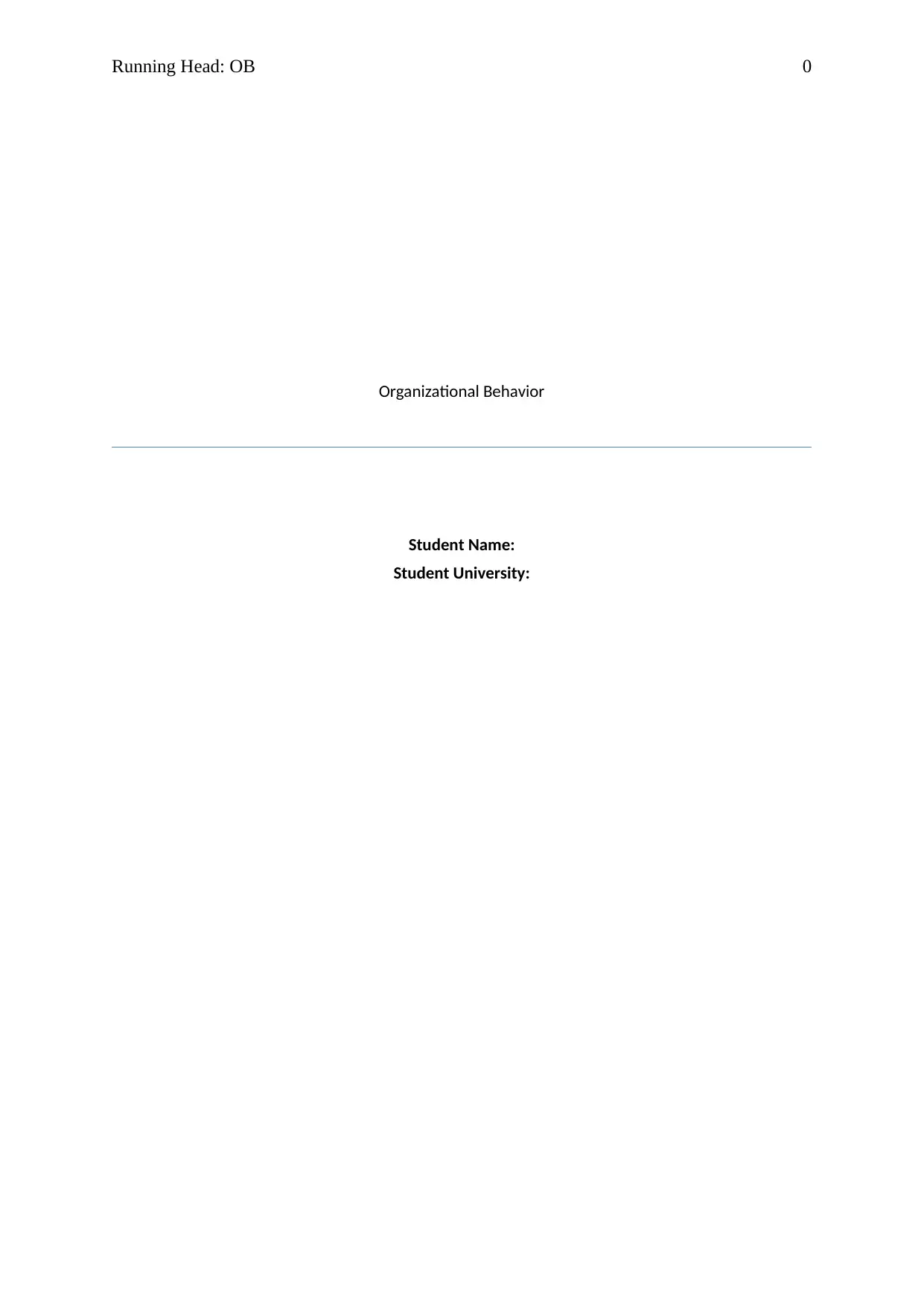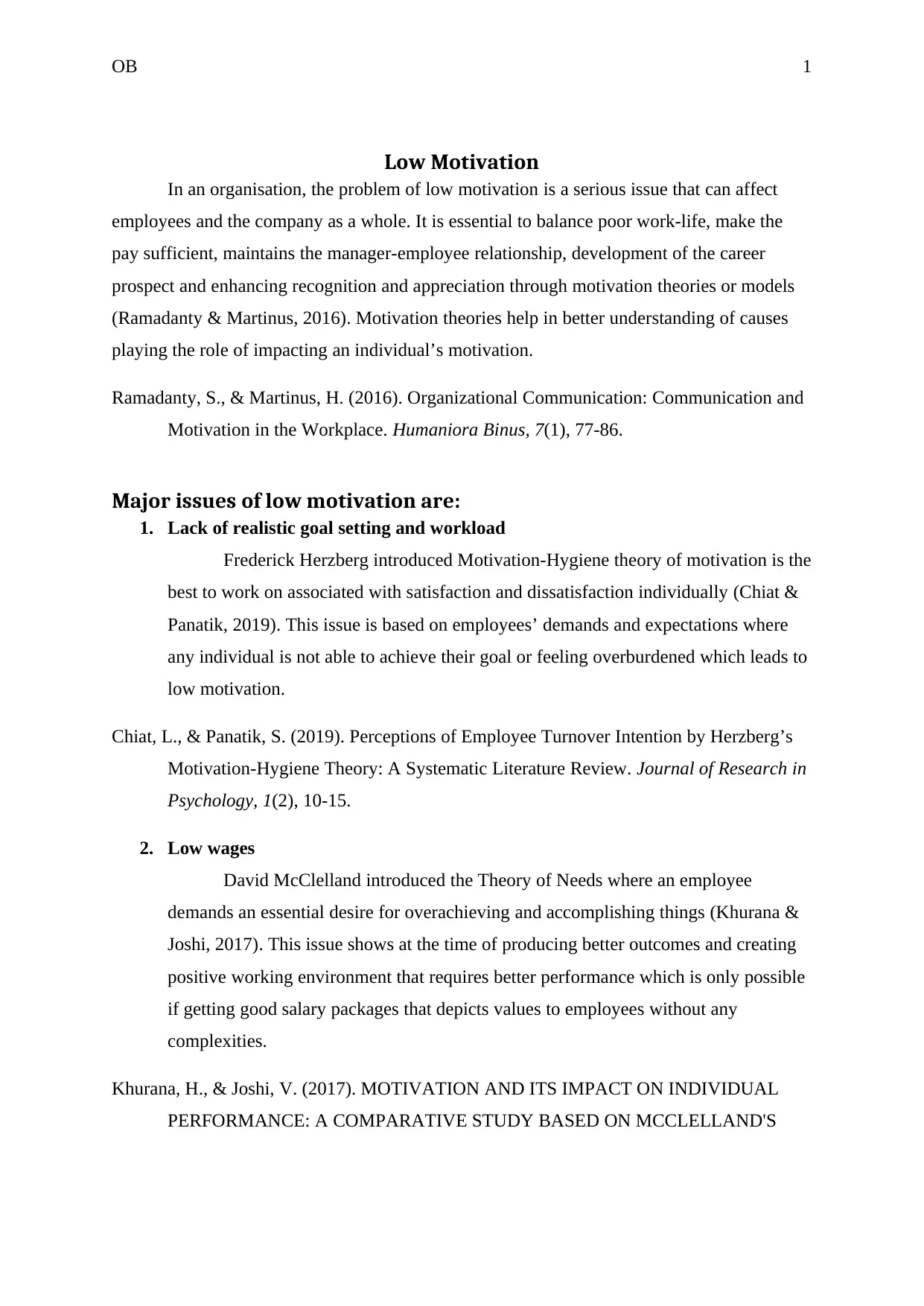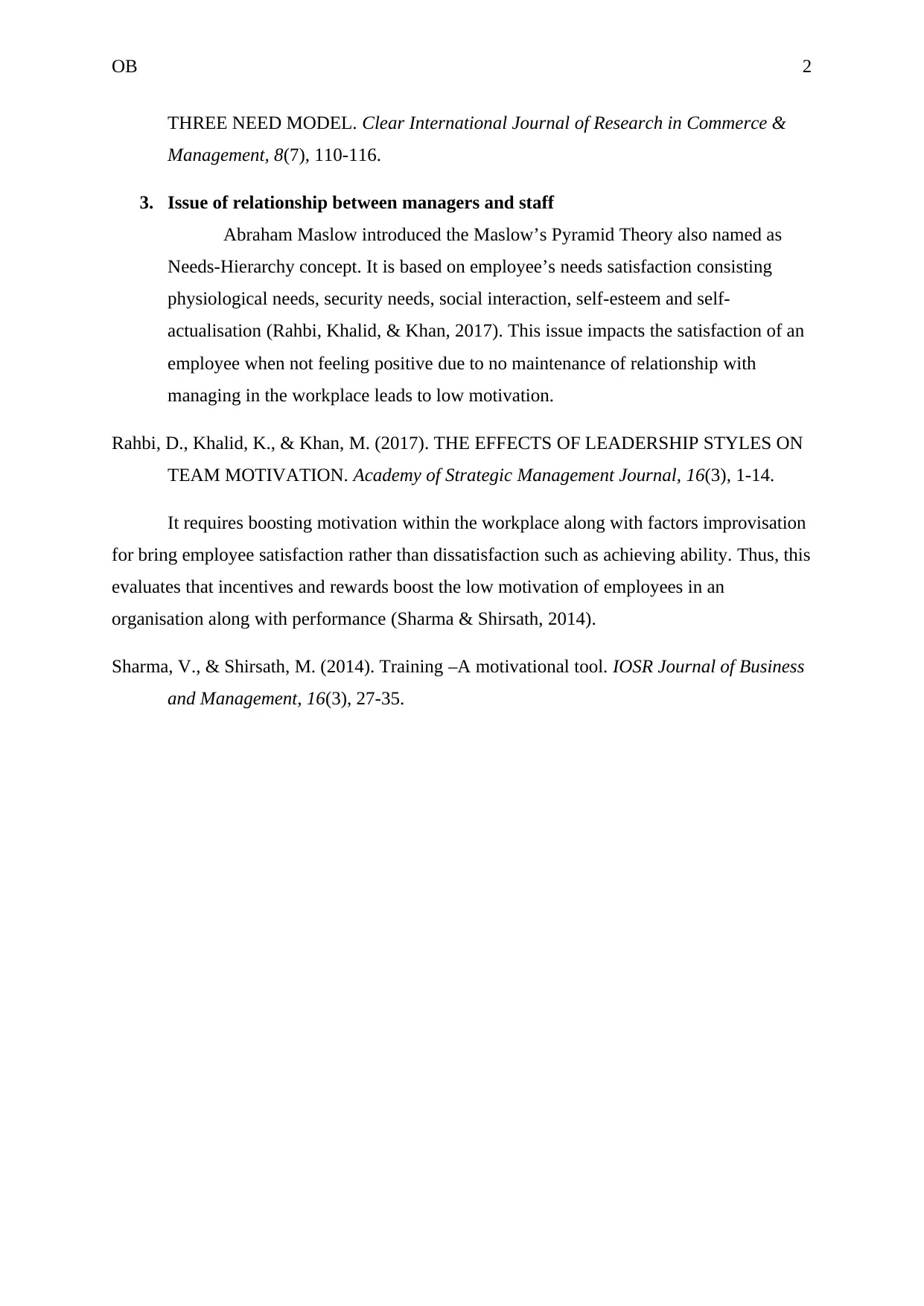MGT2030Y - Organizational Behavior: Low Motivation at ZOAN Rentals
VerifiedAdded on 2022/08/12
|3
|562
|69
Homework Assignment
AI Summary
This assignment analyzes the problem of low motivation within the context of ZOAN Rentals Inc., a property rental company. The student identifies three key underlying issues contributing to the problem: lack of realistic goal setting and workload, low wages, and issues in the relationship between managers and staff. The analysis applies established organizational behavior theories, including Herzberg's Motivation-Hygiene theory, McClelland's Theory of Needs, and Maslow's Hierarchy of Needs, to explain how these issues impact employee motivation and satisfaction. The solution emphasizes the importance of addressing these issues through improved goal setting, fair compensation, and fostering positive manager-employee relationships. The assignment highlights the role of incentives, rewards, and overall workplace improvement in boosting employee motivation and performance.
1 out of 3




![[object Object]](/_next/static/media/star-bottom.7253800d.svg)